November 23, 2016
Edited by David Sanders
Specimen Days
1920—Paul Celan, [Antschell], German/Romanian poet (Collected Prose), is born.
1926—Christopher Logue, British poet/stage writer (Trials), is born.
1949—Gayl Jones, US author/poet (Corregidora, Song for Anninho), is born.
1965-Jennifer Michael Hecht, American poet and historian, is born.
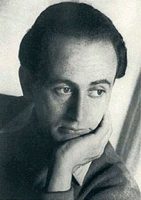
Obsession
After years of wisdom
During which the world was transparent as a needle
Was it cooing about something else?
After having vied with returned favours squandered treasure
More than a red lip with a red tip
And more than a white leg with a white foot
Where then do we think we are?
—Paul Celan
[trans. A. S. Kline]
After years of wisdom / During which the world was transparent as a needle / Was it cooing about something else? – Paul Celan [trans. A. S. Kline]
World Poetry
Egyptian Poet Abdel-Rahman Youssef Sentenced in Absentia to 3 Years for 'spreading false news'

Egyptian poet Abdel-Rahman Youssef has been sentenced in absentia by a Cairo court on Monday to three years in prison on charges of spreading false news and inciting against government institutions during his program on theTurkey-based Al-Wattan channel. Youssef, a one-time TV anchor on the Egyptian CBC channel, is known for his support for the 2011 revolution which ousted Hosni Mubarak.
Egyptian poet Abdel-Rahman Youssef has been sentenced to three years in prison on charges of spreading false news.
Recent Reviews
Johnny Cash, the Poet in Black
by Ben Sisario
Shortly before he died, Johnny Cash scrawled down eight short lines in a shaky hand, mortality clearly on his mind. “You tell me that I must perish/Like the flowers that I cherish,” he wrote.
The Firebreak We’ve Been Waiting For
Review: Sharon Olds, 'Odes'
by Temple Cone
In 1855, a new poet introduced himself to the world: “Walt Whitman, an American, one of the roughs, a kosmos / Disorderly, fleshly, sensual…eating drinking and breeding.” Experimental in its use of free verse; progressive in its treatment of race, gender, and sexuality; and above all democratic in its politics and its spirituality, Whitman’s Leaves of Grass stoked a vast fire that swept through world poetry, consuming and altering all the landscape before it.
Shortly before he died, Johnny Cash scrawled down a short poem with his shaky hand.
Broadsides
The Moscow Calendar’s Going Islamic; or, The Soviet Empire in Brodsky’s Poetry
by Hamid Ismailov

Once I had a dream. I dreamed that Osip Mandelstam had just returned from his journey to Armenia, and he was telling me about it. Framed in the doorway behind him was the Moscow of the 1930s, soldiers marching, a feeling of alarm rising from the stomping of their boots.
What It’s Like to Teach Poetry in the Age of Trump
by Blaine Greteman
How does anyone walk into a classroom and teach a poem after Trump’s win? Across many walks of life it now seems difficult to go back to business as usual. But I’m an English professor, and my usual business is poetry. “Poetry makes nothing happen,” wrote Auden in his memorial to W.B. Yeats, and lessons in the finer points of prosody seem almost perverse in the wake of a campaign that swept to power by flouting introspection, critical thought, and tolerance—all the values central to a liberal arts education.
Drafts & Fragments
Poet Leaves Positive Notes on Car Windows

A Colorado man earned the nickname “Windshield Poet” after going car-to-car, leaving behind encouraging notes. Alex Lewis started the project Car Window Poetry because he believes words are the most powerful force on Earth. One windshield at a time, he has been leaving poems in order to make a small but meaningful impact on others’ lives.
Wake Forest University Naming Dorm for Poet Maya Angelou
Wake Forest University is naming a new residence hall in honor of famous former faculty member Maya Angelou. The private university in Winston-Salem, North Carolina, said Friday the five-story building now under construction will house more than 200 first-year students when it opens in January 2017.
Eight Poets to Discuss Over the Thanksgiving Table
by Danielle Mohlman
As the old saying goes, don’t discuss politics or religion at the dinner table. But extended family is arriving soon and niceties have eliminated most topics of conversation you were hoping to imbibe once the post-turkey wine starts flowing. We’re here to help! Here are eight outstanding contemporary poets we’ll be enthusiastically discussing over the Thanksgiving table.
A Colorado man earned the nickname “Windshield Poet” after going car-to-car, leaving behind encouraging notes.
Poetry In the News
Poet Daniel Borzutzky Wins National Book Award

At last night’s National Book Awards, poet Daniel Borzutzky took home the top prize for poetry. His collection “The Performance of Being Human” was one of five finalists for the award; others included Rita Dove’s “Collected Poems 1974-2004” and Solmaz Sharif’s “Look.”
Donald Trump Has Roused the Poets to Stinging Verse
Hercules inspired poems. Ajax too. Walt Whitman celebrated himself, Shakespeare compared thee to a summer’s day, and T.S. Eliot knew that April was the cruelest month. But poets in our discomfiting age are riffing on President-elect Donald Trump, a man whose tax breaks and Twitter feeds contain multitudes. Some bards have used Trump’s own words — their staccato blend of repetition and emphasis — to capture his singular essence and rhythms. Others have written odes of glee, rage, satire and bewilderment.
At the National Book Awards, poet Daniel Borzutzky took home the top prize for poetry.
New Books
Morning, Paramin by Derek Walcott
[Hardcover] Farrar, Straus and Giroux, 120 pp., $35.00
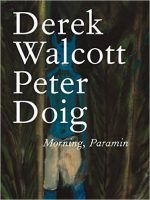
A vibrant meditation on the difficult beauty of the Caribbean, taking the form of a dialogue between a Nobel Prize–winning poet and a renowned figurative painter Morning, Paramin offers us a stunning collaboration between a Nobel Prize–winning poet, Derek Walcott, and a renowned figurative painter, Peter Doig. It journeys through the physical and psychological landscapes of two lives, from the snowy landscapes of Edmonton to the sun-washed shores of the Caribbean, from the process of mourning a loved one to the experience of watching a film. Taking the form of a call-and-response, with paintings on one side and poetry on the other, Morning Paramin lets Walcott’s characteristic perception and wit shine through in his illuminating responses to Doig’s luminescent paintings. Both poems and paintings are triumphant celebrations of life’s pleasures and pains―loving, observing, aging.
That Self-Forgetful Perfectly Useless Concentration by Alan Shapiro
[Paperback] University Of Chicago Press, 192 pp., $25.00
More than a gathering of essays, That Self-Forgetful Perfectly Useless Concentration is part memoir, part literary criticism, and an artful fusion of the two. It is an intimate portrait of a life in poetry that only Alan Shapiro could have written. In this book, Shapiro brings his characteristic warmth, humor, and many years as both poet and teacher to bear on questions surrounding two preoccupations: the role of conventions—of literary and social norms—in how we fashion our identities on and off the page, and how suffering both requires and resists self-expression. He sketches affectionate portraits of his early teachers, revisits the deaths of his brother and sister, and examines poems that have helped him navigate troubled times. Integrating storytelling and literary analysis so seamlessly that art and life become extensions of each other, Shapiro embodies in his lively prose the very qualities he celebrates in the poems he loves
The Griffin Poetry Prize Anthology Tenth Anniversary edited by Ken Babstock
[Paperback] House of Anansi Press, 112 pp., $14.95
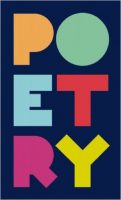
The best books of poetry published in English around the world are honored annually with the Griffin Poetry Prize, one of the world’s richest and most prestigious literary awards. Since its inception in 2001, the Griffin Poetry Prize has become internationally renowned. This incredible tenth anniversary anthology features some of the finest poems from the short-listed and winning collections of the past ten years, including works by Paul Muldoon, John Ashbery, A. F. Moritz, and many other extraordinary poets as selected by acclaimed poet and editor, Ken Babstock. Robert Hass, Pulitzer Prize-winner and former poet laureate, introduces the collection. Royalties from the sales of the anthology are donated to UNESCO’s World Poetry Day, created to support linguistic diversity through poetic expression and to offer endangered languages the opportunity to be heard in their communities.
Hammer Is the Prayer: Selected Poems by Christian Wiman
[Hardcover] Farrar, Straus and Giroux, 224 pp., $26.00
One of the most distinctive voices in contemporary American poetry, Christian Wiman has forged a singular style that fuses a vivid and propulsive music with clear-eyed realism, wry humor, and visionary lament. In his “daring and urgent” (The New York Times Book Review) memoir, My Bright Abyss, he asks, “What is poetry’s role when the world is burning?” Hammer Is the Prayer: Selected Poems might be read as an answer to that question. From the taut forms of his first book to the darker, more jagged fluencies of his second, into the bold and pathbreaking poems of his last two collections, Hammer Is the Prayer bears the reckless, restless interrogations and the slashing lyric intensity that distinguish Wiman’s verse.
Sleaze & Slander: New and Selected Comic Verse, 1995-2015 by A M Juster
[Hardcover] Measure Press,124 pp., $25.00
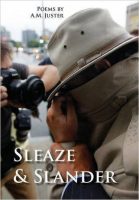
Sleaze & Slander collects twenty years of the humorous verse of a poet funny enough to revive the nearly lost art of light verse. His mastery of meter and rhyme allows him to deliver the unexpected punchline flawlessly. He can capture the voice of classical Roman satirists or dueling medieval Welsh poets, but he can also mimic the voice of his contemporary, former Poet Laureate Billy Collins. He is unafraid of imposing targets, such as Bill Gates or the Supreme Court, although his favorite target is himself. He moves from the tabloids to the military threat of Canada to annoyances in the workplace to greeting cards with equal fluency; he even adds a quiz. As long as you are not mentioned in Sleaze & Slander, this is a book that you will enjoy and want to give to others.
The best books of poetry published in English around the world are honored annually with the Griffin Poetry Prize.
Correspondences
Ben Lerner: ‘Being a poet is like saying: I have an important job, and I’m a total sponger’
by Kate Kellaway
You recently wrote a monograph, The Hatred of Poetry. To what extent do you, as a poet, hate poetry?
My first teacher and dear friend, the person to whom No Art is dedicated, CD Wright, was a great poet who died recently. When I was an undergraduate, she was a hero to me. I remember telling her once – I was a kid – that I was frustrated with writing, and she said: “I hate poetry half the time.” She was kind of joking, kind of not. Any art, maybe poetry in particular, is caught up in a repetitive experience of disappointment – the distance between what you want to do and can do.
A Conversation Between Nikky Finney and Donika Kelly
Nikky Finney interviews Donika Kelly
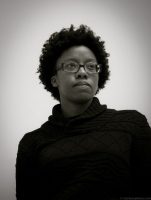
Donika Kelly’s debut collection, Bestiary (Graywolf Press, 2016), was selected by Nikky Finney for the 2015 Cave Canem Poetry Prize. She holds an MFA in writing from the Michener Center for Writers at the University of Texas at Austin, and in 2013, she received a PhD in English from Vanderbilt University, where she specialized in American literature and film studies. Donika is a Cave Canem graduate fellow and a 2004 June Fellow of the Bucknell Seminar for Younger Poets. Her poems have appeared in various journals, including West Branch, Indiana Review, Virginia Quarterly Review, and others. Donika is an assistant professor at St. Bonaventure University, where she teaches creative writing.
In early October, Nikky Finney interviewed Donika Kelly about her debut collection, Bestiary. The collection was recently long-listed for the National Book Award in Poetry.
Nikky Finney interviewed Donika Kelly about her debut collection, Bestiary.
Envoi: Editor’s Notes
Still in the shadows after the election, I am left with poetry but without any of its lightness. For lightness, I turn to music. But from poetry, I draw on its sense of perspective when I find it. Here is another favorite of mine, from the underrated Edgar Bowers. The careful, steady incline of the poem is a thing to behold.
In Defense of Poetry
Childhood taught us illusion. When I saw
On Frederic March’s hands the fierce black hair
And long sharp nails of Mr. Hyde, I ran
Screaming from the theater, his twisted face
Demonic behind me brighter than the day;
Then begged to stay up past bedtime, for fear
Boris Karloff wake me and, near despair,
I run to consolation through the dark.
And while Miss Hinton taught us spelling, grammar,
Multiplication – all like lovely guides
To bring us safely from the labyrinth
Of self and self’s intelligence – it seemed
I heard the voice that mocked them. "There is no
Language," it whispered, "no A on tests, no trust
To keep you from the presence of my face.
Parents and children die, anguish will be
Greater than its hard sum and no familiar
Voices deliver you from Mr. Hyde,
However Dr. Jekyll seem secure."
Now in a bright room in a building named
For one who taught the art of politics,
Three days a week I listen to the stories
My young friends write, remembering that my father
Loved stories and especially those he told.
Intelligent and brave, they risk their way
By speech from childhood anguish, formal candor
An old light shining new within a world
Confusing and confused, although their teachers
Deny the worth of writing – my latest colleagues,
Who hope to find a letter in the mail,
Are happy if their children study Shakespeare
At Harvard, Penn or Yale, write articles
To prove all writing writers’ self-deception,
Drive Camrys, drink good wines, play Shostakovich
Or TV news before they go to bed,
And when their sleeping or their waking dream
Is fearful, think it merely cinema,
Trite spectacle that later will amuse.
But when my mind remembers, unamused
It pictures Korczak going with his children
Through Warsaw to the too substantial train.
“Childhood taught us illusion.” – Edgar Bowers